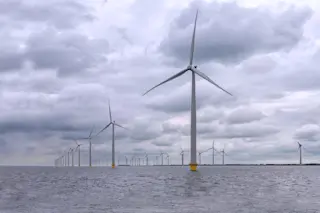James Fallows has a cover story on the inevitability of coal in The Atlantic magazine that is a must-read. The piece cogently lays out why coal is king and why it must be made to be clean. The story is already prompting knee-jerk annoyance in predictable places. More on that in a minute. Here's the the nutgraph--the premise of the story, where its purpose is explained (my emphasis):
The proposition that coal could constitute any kind of "hope" or solution, or that a major environmentalist action plan could be called "Coal Without Carbon," as one I will describe is indeed named"”this goes beyond seeming interestingly contrarian to seeming simply wrong. For the coal industry, the term "clean coal" is an advertising slogan; for many in the environmental movement, it is an insulting oxymoron.
But two ideas that underlie the term are taken with complete seriousness by businesses, scientists, and government ...













